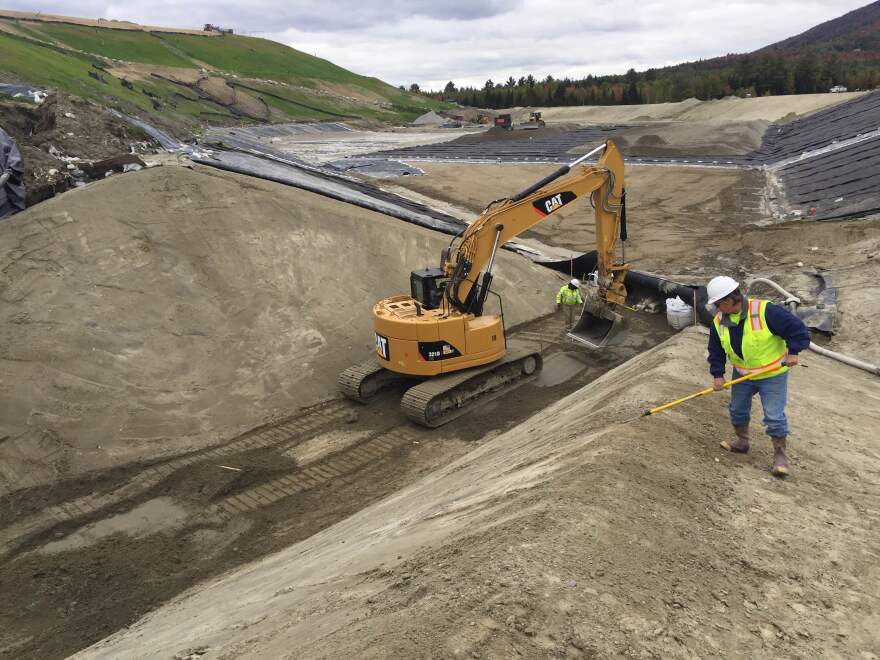New Hampshire is facing a lawsuit for permitting landfill expansions without having an updated plan for reducing solid waste.
The suit, filed Thursday in Merrimack Superior Court, comes from the Conservation Law Foundation.
CLF's state director Tom Irwin has contested several landfill projects in the state in recent years. He said they’ve all been in violation of state statute, which requires the Department of Environmental Services, or DES, to update its solid waste plan every six years.
“DES has been operating with a state solid waste plan that was published in 2003 and expired in 2009,” Irwin said. “Our lawsuit is designed to require DES to come into compliance with the law, start planning in ways that will allow New Hampshire to begin reducing the amount of waste it throws away, and move New Hampshire away from its current overreliance on landfills.”
Irwin said that plan, which requires substantial public input, should include the state’s standing goal of reducing waste by 40% and its solid waste hierarchy, which lists landfilling as the least preferred option, after recycling and composting, reuse and reduction of waste at its source.
Irwin and CLF are involved in litigation over expansions at Waste Management’s Turnkey Landfill in Rochester and Casella’s North Country Environmental Services dump in Bethlehem.
But he said the biggest concern in this broader suit is the new North Country landfill Casella is proposing in Dalton. The project is in its early permitting stages but has drawn staunch local opposition. It would have the capacity to operate for close to 40 years, sited near a state park.
“It makes no sense for DES to be making major decisions like issuing permits for a landfill of this scale, that will have wide-ranging ramifications for the state for decades to come… without a state solid waste management plan that is updated and complies with the law,” Irwin said.
He said that updated plan should suggest policy changes that would encourage composting and recycling and reduce single-use plastics. Plastic is produced from fossil fuels, and landfills themselves are also a key contributor to the greenhouse gases that drive climate change.

Get NHPR's latest environmental reporting delivered to your inbox. Sign up for our newsletter today.
Irwin also wants the state to deter out-of-state waste from entering New Hampshire landfills. Trash from elsewhere in New England makes up about 30% of what’s dumped in Bethlehem and it's more than half at the Rochester facility.
Landfill opponents have suggested that the state wouldn’t need to expand these facilities or allow the Dalton project to accommodate New Hampshire trash alone.
“I would suggest that New Hampshire is actually harming the region as a whole by continuously creating landfill capacity that other states can make use of,” Irwin said. “If we aren’t continuously expanding our disposal capacity, it forces the issue.”
Jon Swan, a lead critic of the Dalton proposal, said in an email that the lawsuit shows the state “has abdicated responsibility for solid waste planning.”
“This should serve as a wake up call to state officials as our precious natural resources and environment, so vital to the state tourism industry and economy, come under threat from further exploitation by an out of state corporation,” he said, referring to Vermont-based Casella.
The CLF suit seeks declaratory judgments that New Hampshire is violating its laws until it publishes a new solid waste management plan, as well as an injunction against further landfill permits of any kind until that time.
Irwin said they've asked for an expedited hearing to block permitting activity on the Dalton project. A hearing on a preliminary injunction is scheduled for Feb. 23. DES did not immediately respond to a request for comment on the suit.








